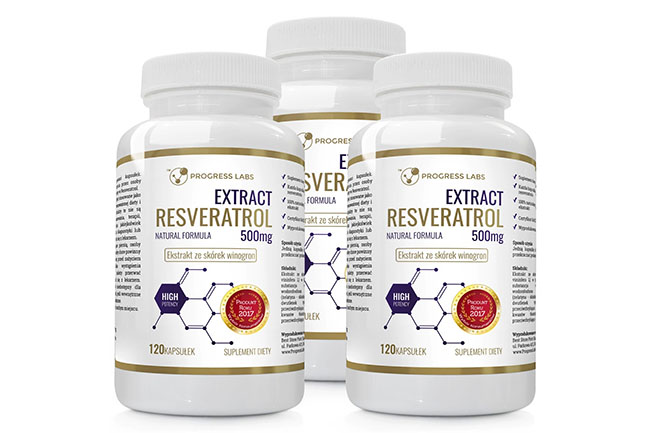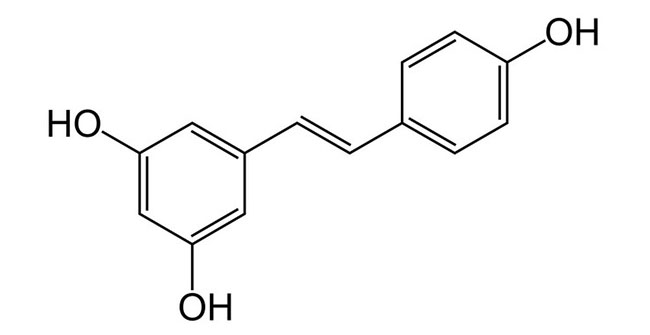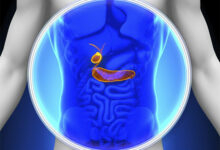Resveratrol has a lot of beautiful-sounding names – the king of the antioxidants, brain shield, youth elixir, nectar of the gods, molecule of youth, secret weapon of modern cosmetology, and many others.
Since the moment the Japanese scientist Michio Takaoka first allocated it from the poisonous medicinal plant, hellebore in 1939, there have not been scientific disputes about it. Every year studies are carried out that either confirm its useful properties or refute them. It even has its own godfather – the biologist David Sinclair who devoted his entire life to its study. So what is it really? Is it a capsule of eternal youth or just another empty promise with exaggerated marketing roar?
What is It?

Resveratrol is a natural phytoalexin, stilbene (fragrant hydrocarbon diarylethylene), bioflavonoid, and polyphenol. It is produced by some plants as a protective reaction to parasites (bacteria, fungi), and from ultraviolet radiation.
Scientific name: trans-3,5,4-trihydroxy-stilbene. Some sources use another spelling of the term – reservatrol. INCI classification (international nomenclature of cosmetic ingredients) denotes it as Resveratrol.
It is produced from plant and wine extracts at the factories through fermentation.
Physical and chemical properties:
- in pure form it is powder;
- color – all palettes of brown are most frequent – cocoa;
- specific smell – sharp and tart, with a musky tint;
- it does not dissolve in ethanol and water completely.
It exists in nature in two forms:
- Cis-resveratrol (Z) – has a pronounced antioxidant effect, can affect gene transcription.
- Trans-resveratrol (E) – has more biological activity, has a pronounced anti-inflammatory effect, and affects cancer cells.
Most of the studies are carried out with trans-resveratrol. This form is the part of the vast majority of dietary supplements.
It is an organic substance with a branched chemical formula. Therefore, its composition is difficult to split into components. Producers of dietary supplements in order to increase the efficiency add to it all sorts of plant extracts, vitamins, and other bioactive components.
Chemical formula: C14H12O3.
Structure formula:

It is produced in the form of a dietary supplement with antioxidant, cardioprotective, antidiabetic, and tonic properties. Besides, some sports nutrition brands produce it as a fat-burning preparation that helps to increase the effectiveness of training and increase muscle mass. The main form of the release is capsules and tablets.
Studies
Since the mid-1990s of the XX century, it has been a constant object of various researches. This is largely due to the works of David Andrew Sinclair, a famous Australian biologist, professor of genetics, and currently a professor at Harvard University. In 1995 he received a doctorate in molecular genetics and focused on the study of the “longevity elixir” (exactly this way the scientist calls this phytoalexin in most of his works and interviews).
Most of the studies have been focused on the antitumor properties of resveratrol as an effective cure for cancer has not yet been found. Many scientists (not only Sinclair) assumed that this will be a real breakthrough in this area. Another aspect, which is constantly analyzed, is the ability to slow down the aging process and extend life.
A brief chronology of research and their results looks like this.
- 1997
Prevents the formation of cancer cells on the skin of mice that have been exposed to carcinogens.
- 2002
Reduces the number and size of tumors, prevents stomach and colon cancer in rats which have been artificially affected by carcinogens.
- 2003
Extends the life of yeast, nematodes, and fruit flies.
- 2006
Additional studies on mice confirmed antitumor properties.
The first study on people. 10 volunteers took part in the experiment. As a result, the assumption that antitumor properties apply to the human body was not confirmed. This was attributed to low bioavailability.
The study of fish conducted by Italian scientists showed the increase of overall activity, improvement of learning ability.
Sinclair confirmed the ability to extend life (experiments were carried out on mice).
- 2007
Prevents the formation of cancer cells on the skin that has been exposed to ultraviolet radiation. It slows down the growth of Lewis carcinoma. However, it did not affect melanoma, stomach tumor, and leukemia.
Another group of scientists checked the data of 2003 studies and refuted their results. There was no increase in life expectancy.
- 2011
The study on artificially created, synthetic cell models. It showed an increase in apoptosis and slowing down the tumor growth.
The absence of the ability to extend life was confirmed again.
- 2012
The scientific article by Japanese scientists was published that said it was possible to create a harmless preparation for the treatment of cancer on the basis of resveratrol to suppress the Wnt signal (triggers the growth of tumor cells).
- 2013
It supports normal functioning of brain neurons during aging.
Within the framework of the anti-aging testing program of the National Institute on Aging, Sinclair’s experiment on mice (2006) was repeated exactly. The ability to extend life has not been confirmed.
In the same year, South Korean scientists published the results of studies on dogs: there was a positive effect on life expectancy.
Conclusions
Most of the above studies were conducted under the guidance of David Sinclair. These are not all experiments and published scientific articles. Their number is huge. However, all of them have two drawbacks. First, they were conducted on yeast, insects and rodents. Only once 10 volunteers took part, but the conditions of the experiment are not enough to make extensive and reliable conclusions. Secondly, the obtained results are too contradictory.
Based on this, resveratrol is used only in the form of dietary supplements. Its alleged useful properties are still at a hypothetical level and need thorough testing and confirmation. That is why it is not used in pharmaceuticals and is not included in any medical preparation.
Usefulness and Harm

Numerous studies show that resveratrol has a beneficial effect on the activity of various internal organs and systems. However, its usefulness for the body is still in the zone between the theory and practical application. There is not enough mass testing on people.
Some scientists (headed by Sinclair) consider this substance a panacea for many diseases. Others are extremely skeptical. Such a split can be observed in reviews. Some people are delighted with the effect of the food supplements based on it, while others consider its purchase a waste of money.
Usefulness for Health
Why does the body need resveratrol:
- it blocks the growth of tumors;
- Click to rate this post!



